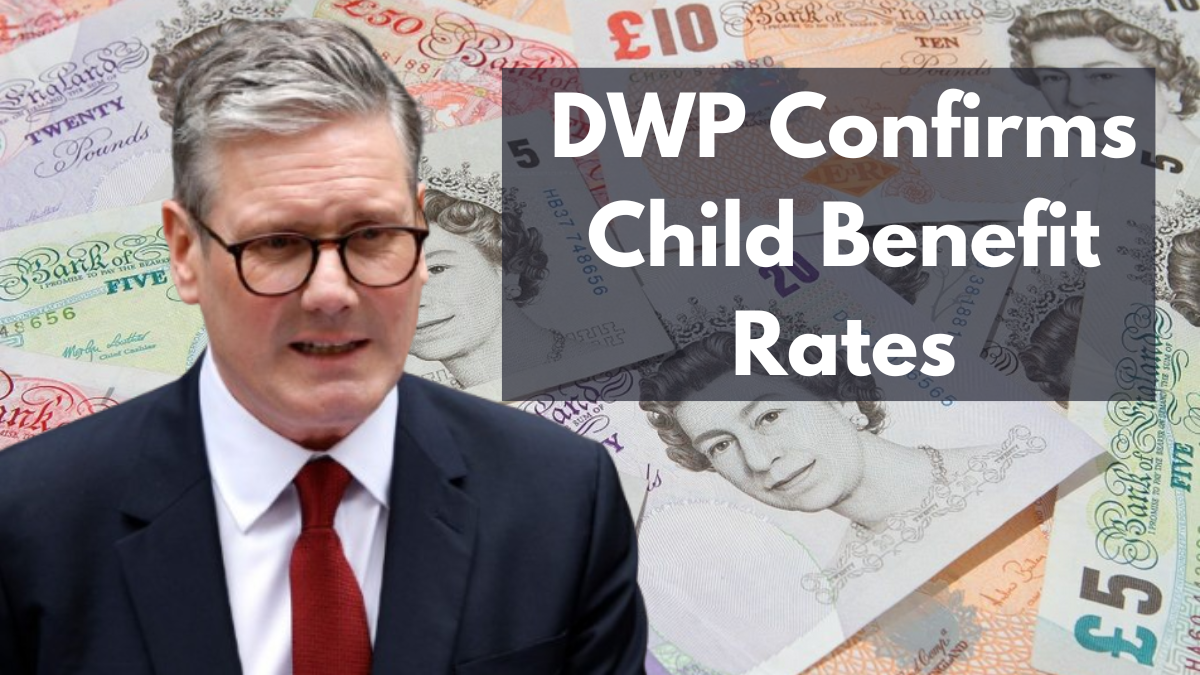The UK government has officially announced new Child Benefit rates that will take effect from April 2025. This update comes after extensive discussions in Parliament, reflecting the government’s ongoing efforts to provide financial support to families. Below, we explore the latest changes, eligibility requirements, and other essential details to help families understand how these updates will impact them.

New Child Benefit Rates from April 2025
The Department for Work and Pensions (DWP) has confirmed that starting in April 2025, families will receive increased Child Benefit payments. The revised rates are as follows:
| Child | Current Weekly Rate | New Weekly Rate (April 2025) |
|---|---|---|
| First child | £25.60 | £26.05 |
| Additional children | £16.95 | £17.25 |
There is no restriction on the number of children for whom families can claim Child Benefit. However, families receiving Universal Credit should note that the benefit cap remains in place, meaning only two children per family can be included in Universal Credit claims.
Debate Over the Two-Child Benefit Cap
The two-child benefit cap has been a subject of ongoing debate. Former Labour leader Jeremy Corbyn recently questioned Work and Pensions Minister Sir Stephen Timms about the future of this policy. In response, Sir Stephen emphasized that the Child Poverty Taskforce is actively reviewing government measures to address child poverty. While social security changes are under consideration, the removal of the two-child limit remains uncertain. The task force is expected to provide a comprehensive report outlining potential reforms.
What Families Need to Know About Payment Adjustments
Families who are currently receiving Child Benefit do not need to take any action. The increased payments will be automatically adjusted and deposited into their existing bank accounts. However, those who need to update personal information such as bank details or addresses can do so through the official GOV.UK website.
For new parents, claims can be backdated for up to three months, ensuring they do not miss out on any entitlements.
Eligibility Criteria for Child Benefit
To qualify for Child Benefit, you must be responsible for raising a child who meets the following criteria:
- Under 16 years old
- Under 20 years old, if they remain in approved education or training
If a child is still in full-time education or registered for specific training programs, parents can continue to receive support until their child turns 20.
High-Income Child Benefit Charge (HICBC)
If either parent or guardian has an adjusted net income above a specific threshold, they may be subject to the High Income Child Benefit Charge (HICBC). The threshold is calculated based on earnings before personal allowances and deductions, including savings interest and dividends.
- If an individual’s adjusted net income exceeds £50,000, they will need to repay part of their Child Benefit through the tax system.
- If an individual’s adjusted net income is £80,000 or more, the amount paid back will be equivalent to the entire Child Benefit received, meaning they will receive no net financial gain.
In cases where both partners earn above the threshold, the individual with the higher adjusted net income is responsible for paying the charge. Those affected must file a self-assessment tax return each year to repay the relevant amount.
Child Benefit and National Insurance Credits
Claiming Child Benefit offers additional advantages beyond financial support. Parents and guardians who receive Child Benefit for a child under the age of 12 are automatically credited with National Insurance (NI) contributions. These credits help build entitlement to the State Pension, ensuring that parents who are not currently working or earning below the National Insurance threshold do not experience gaps in their contribution records.
If a claimant does not require these credits, another family member can apply for them. This includes:
- A spouse or partner who can request a transfer of credits
- A grandparent or other relative providing care for the child, who can apply for Specified Adult Childcare Credits
Only one person can claim Child Benefit for each child, so it is essential to determine the best arrangement for your family’s financial future.
| Aspect | Details |
|---|---|
| Update | The 2025 Child Benefit update offers increased financial support. |
| Complexity | Eligibility rules and high-income charges remain intricate. |
| Recommendation | Families should stay informed about entitlements and seek professional advice if affected by income thresholds. |
| Further Information | Visit GOV.UK to learn more and maximize available benefits. |
Frequently Asked Questions (FAQs)
1. How do I apply for Child Benefit?
You can apply for Child Benefits online through the GOV.UK website or by submitting a paper form. Ensure you provide the child’s birth certificate and relevant identification details to avoid delays.
2. Can I claim Child Benefit if I am not a UK citizen?
Yes, if you are legally residing in the UK and responsible for raising a child, you may qualify for Child Benefit. However, some visa types impose restrictions, so it is best to check eligibility on GOV.UK.
3. What happens if my income increases above the Child Benefit threshold?
If your income surpasses £50,000, you will be required to repay part of the benefit through the High Income Child Benefit Charge. If it exceeds £80,000, you will need to repay the full amount.
4. Can both parents claim Child Benefit for the same child?
No, only one person can claim Child Benefit per child. However, parents can decide who should receive the payments and National Insurance credits.
5. What if I forget to apply for Child Benefit after my child is born?
Claims can be backdated for up to three months, so it is advisable to apply as soon as possible to avoid missing out on payments.
For More Information Click Here
